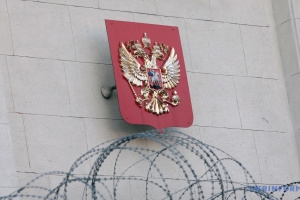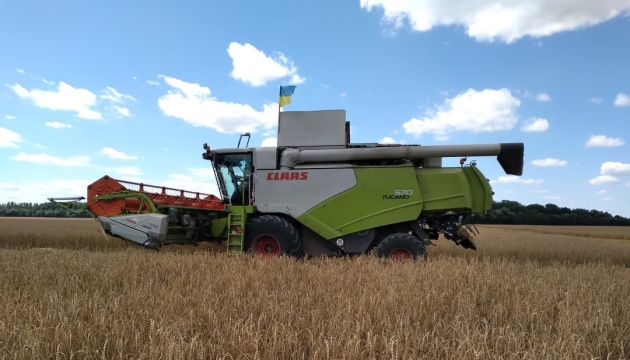
Bountiful harvest in Zhytomyr region with no sales market
For the second year in a row, farmers in Zhytomyr region have been sowing and harvesting crops amid Russia's full-scale war. On the one hand, they are in a much better position than their colleagues in eastern and southern Ukraine, as there are no battles, and the land is not mined. However, the war has also had a significant impact on the work of agricultural enterprises there. The biggest challenge now is the inability to export grain, which is compounded by the lack of labor, as many workers are defending the country.
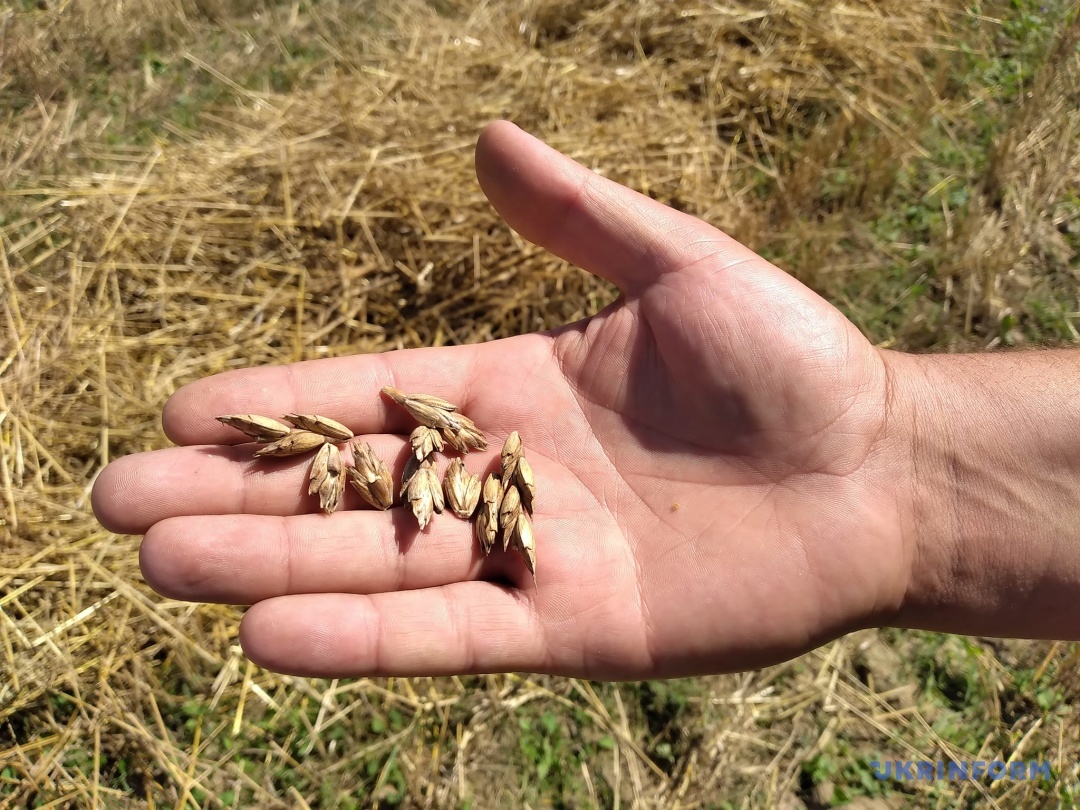
Under the current conditions, farmers only slightly complain about the rains, which do not allow for uninterrupted grain harvesting. At the same time, the weather is favorable for late crops, which will yield a better harvest than last year. But will there be room to sell it? The question is rather rhetorical, as farmers cannot predict anything now.
An Ukrinform correspondent visited the harvest in Zviahel district, where organic spelt (wild wheat) is being harvested, and talked to those who work on the land and care about food security.
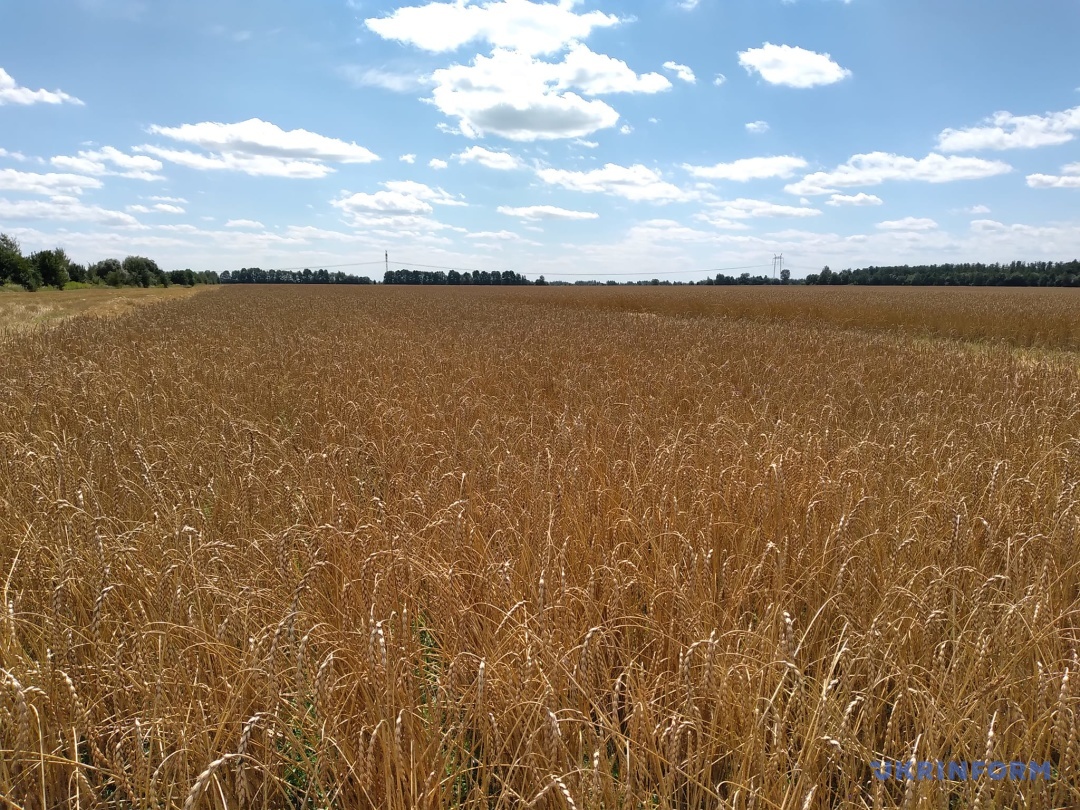
Organic spelt grows on 2,000 hectares
My colleagues and I are on our way to a field in the village of Stryjeva in Zviahel district, where the harvest is underway. Buckwheat is blooming on the left side of the road. Harvesters and trucks are working on the right one. In the afternoon, the temperature reached over 30°C. No rain is predicted, so harvesters are continuously threshing the field. Where the grain has already been harvested, cylindrical straw bales are instantly growing.
"Come and see what we are growing here," Serhii Leonets, Executive Director of Galeks-Agro, says. "This is an ancient crop, wild spelt wheat, which we grow under organic conditions on 2,000 hectares. In this field, 110 hectares are sown with it. Spelt is very valuable, but there is not much information about it. We try to spread the word so that people know about this crop’s benefits. For example, spelt porridge is very healthy. Besides, spelt is low in gluten... There, behind you, buckwheat grows, where our apiary is located, and we collect buckwheat honey."
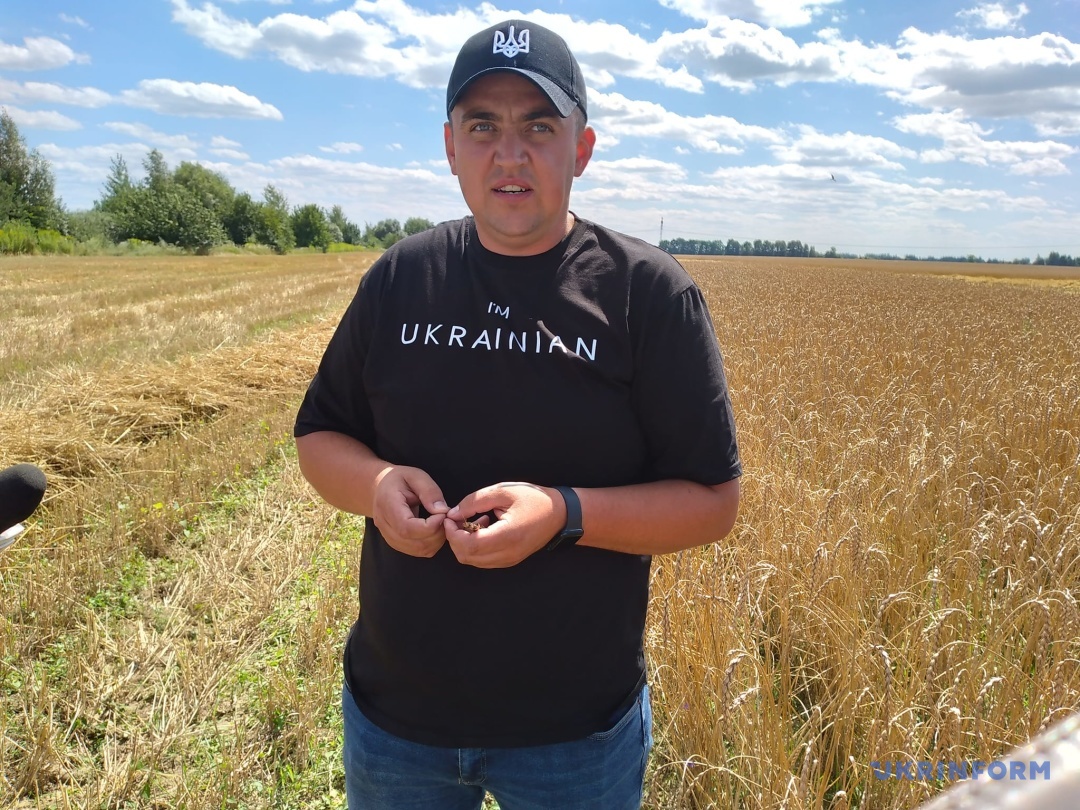
The company specializes in organic farming. It cultivates 10,000 hectares of land, where it grows over a dozen organic crops, including spelt, sunflower, soybeans, corn, and buckwheat. In addition to crop farming, the company is also engaged in organic livestock farming, and has two plants that process milk and meat. They also have a workshop that produces cereal grains (wheat, barley, oat, buckwheat, spelt) and flour.
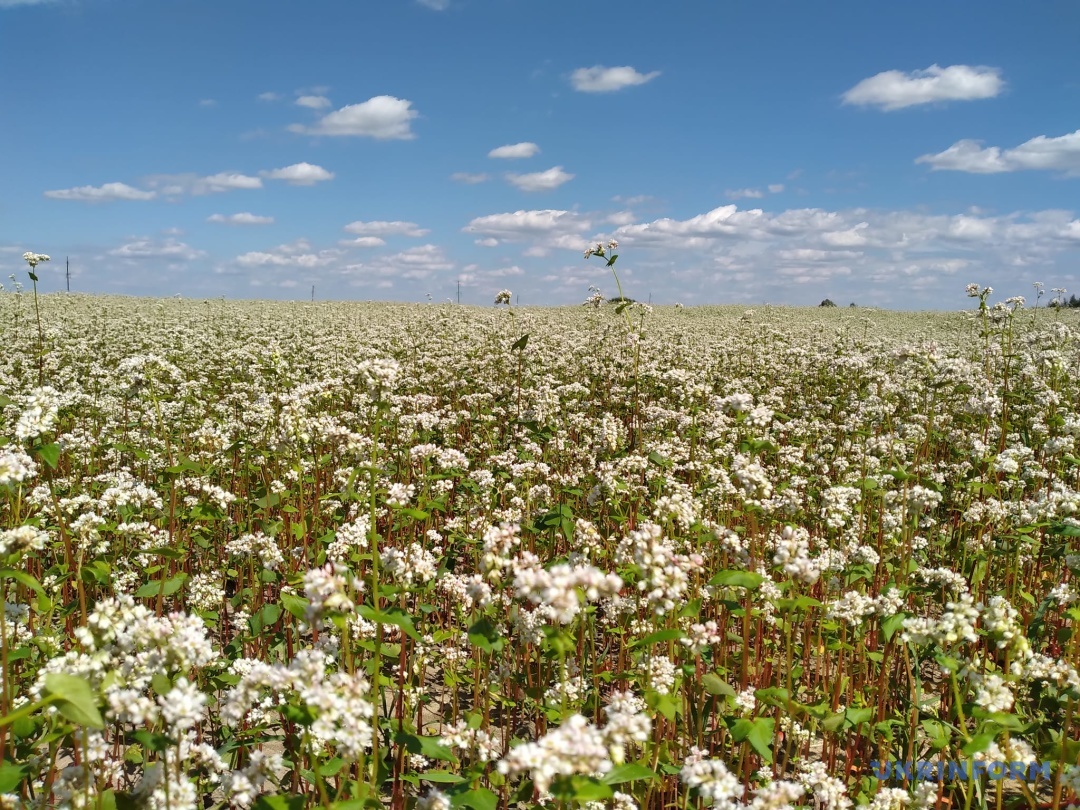
The executive director explains that all production at the company is certified. No pesticides, herbicides, or plant protection products are used to grow the crops, which could help to get a better harvest or more profit. As proof, Leonets shows a green weed growing between the spelt.
"In our farm, the harvest started a week ago. We started harvesting this field today. So far, we have harvested only 80 tonnes. In general, there are problems with harvesting due to frequent rain. If it's a day off for the agronomist, it's a nervous day for the director. This year, for the first time in 10 years, we turned on the drying system for winter crops. Now we are drying wheat and spelt, which is an additional and quite significant expense, but I think we can manage," Serhii adds.
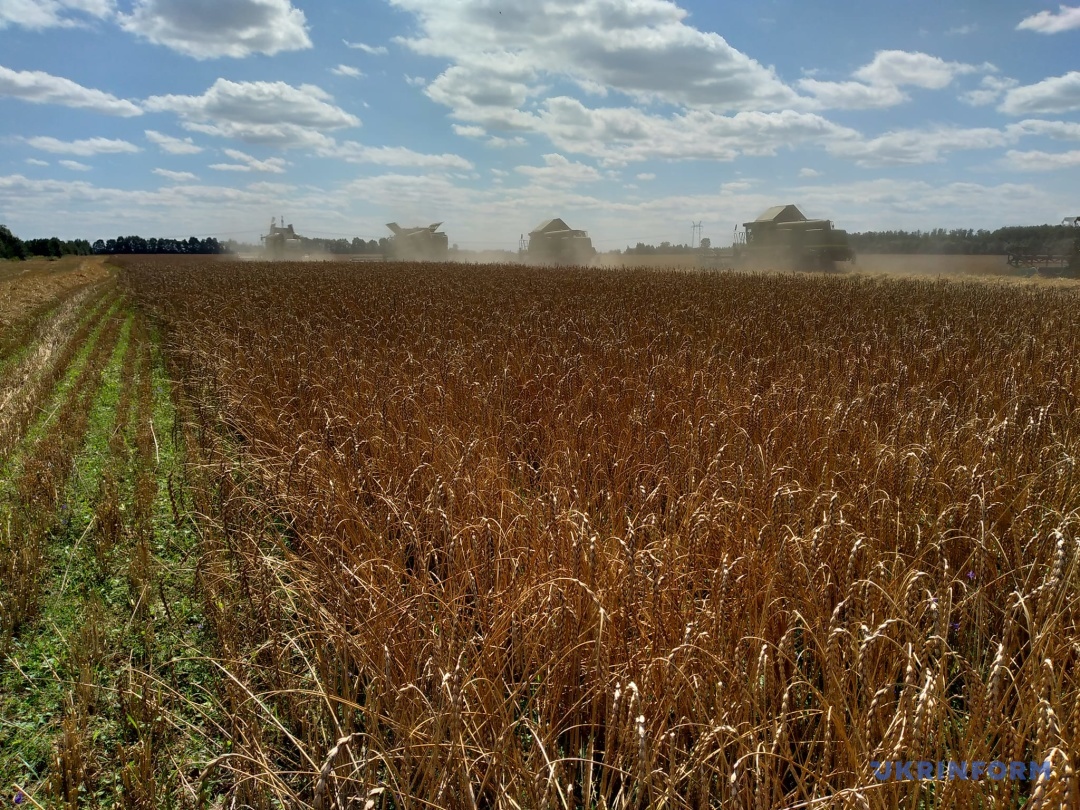
Lack of labor and closed European markets
Rainy weather is only half the problem. There are other, much more complicated problems that agribusiness has faced in the context of Russia's full-scale war.
Last year, Galeks-Agro, like all other Ukrainian farmers, experienced a crisis in the diesel fuel market during the sowing season. Now they do not complain about the situation with the fuel supply. But there is a shortage of labor, as about 35% of the company's employees are in the Armed Forces. Serhii Leonets notes that the key factor in agriculture is people, without whom the land is worthless.
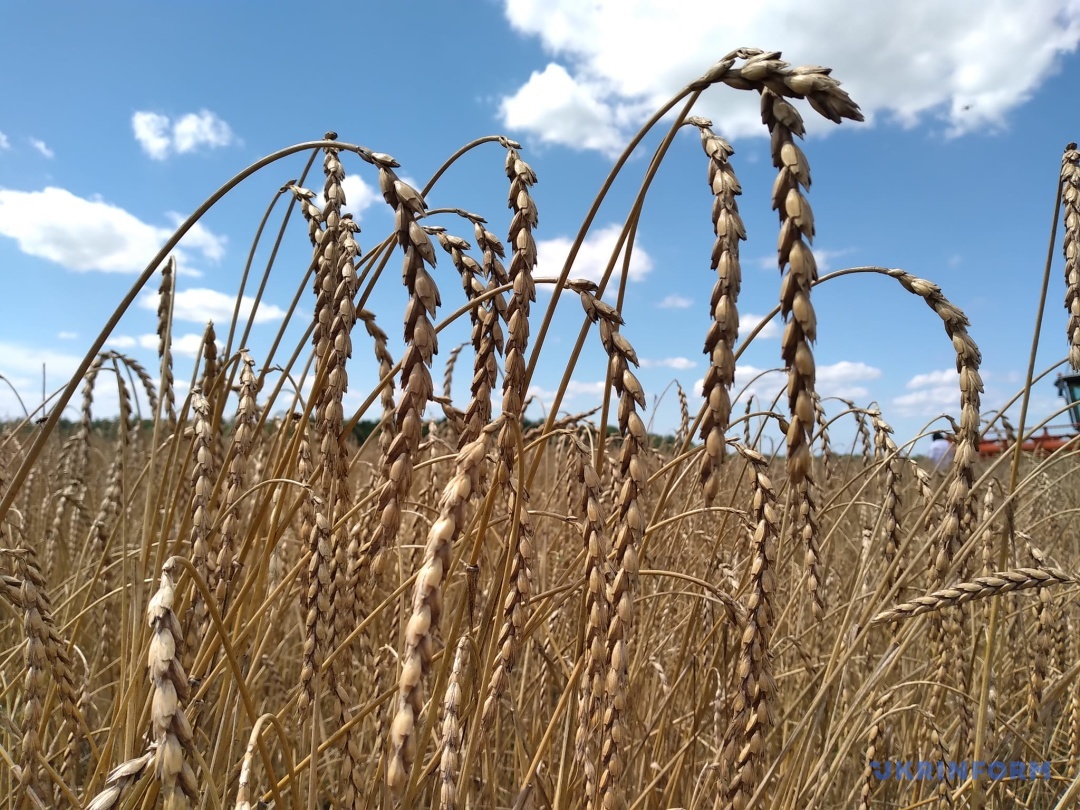
"Today, when we are talking to you here in the field, sales have stopped altogether," the executive director says. "No one is interested if it's organic or not now. The market has completely stopped. I can't say what will happen tomorrow... We sent inquiries to all the partners we worked with before the full-scale war, and there are about 20 of them in Europe. All of them refused our products, explaining that there was no need for them. They are faced with the task of buying out everything that is already on the European market. When a gap appears, we may enter Europe with our products. But this is not yet predicted. This is a big problem. Business is in a critical state now."
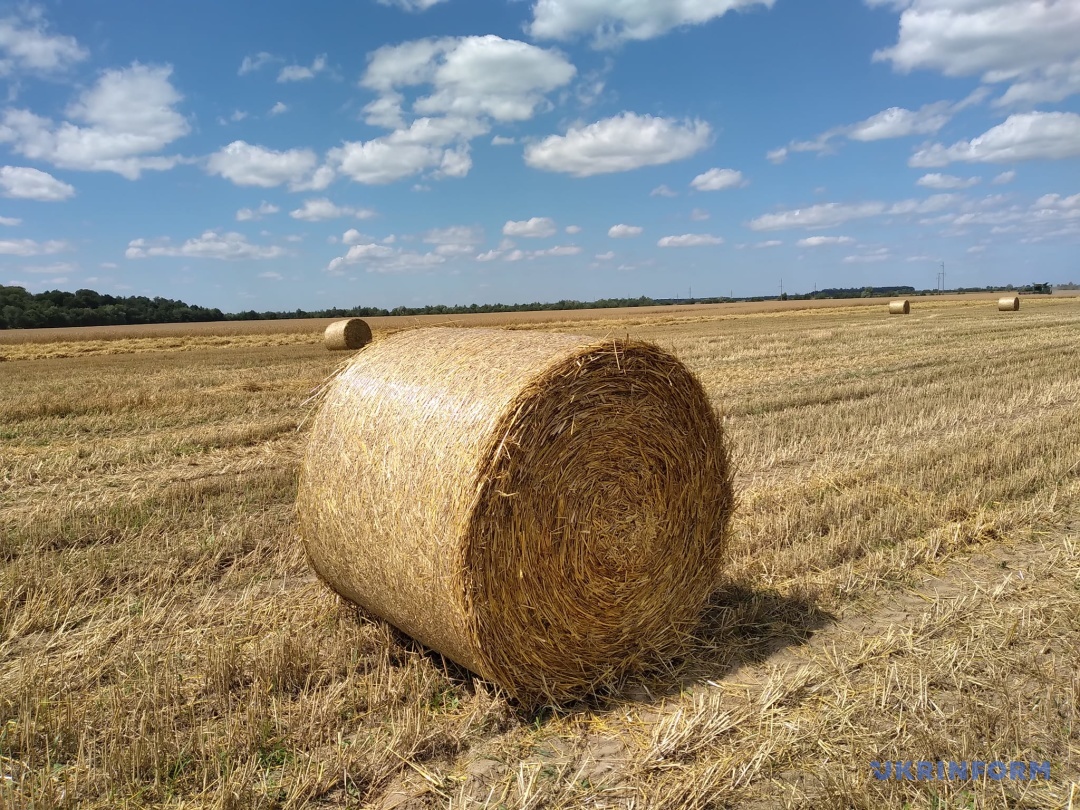
Previously, the company exported 40% of its grain products and processed the rest for the Ukrainian market. Now the company has only one contract with Italy, where it will sell 10 tonnes of spelt. For Galeks-Agro, this is an insignificant amount, but at the same time, it is a chance to declare that Ukraine is engaged in organic production. Until February 2022, European countries were the main buyers of unprocessed spelt.
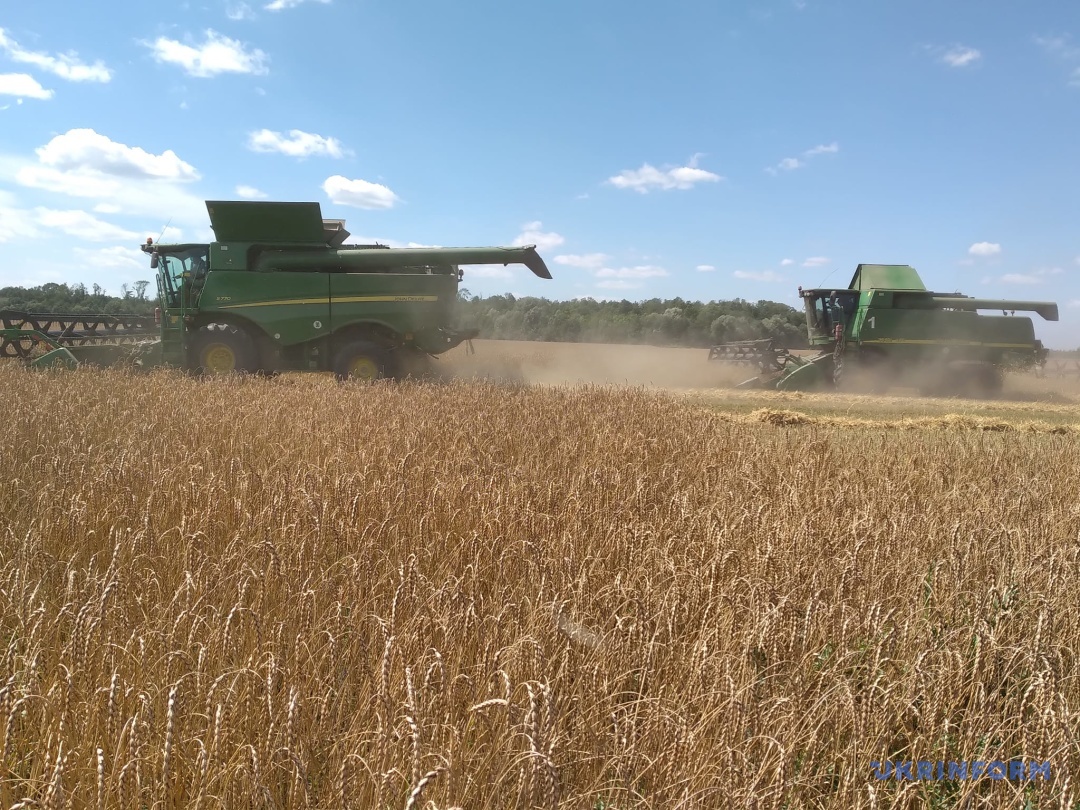
The new harvest adds to the hassle
According to forecasts, this year the company will harvest 5-10% more grain than last year, thanks to regular rains. Some of last year's grain had to be packed in grain storage. If the sales market does not work, farmers will remain in a vicious circle, as there will be no need to sow grain that cannot be sold. This will lead to a lack of funds to pay salaries, buy diesel fuel, and maintain machinery.
Roman Savchuk, the company's chief agronomist, is cautiously optimistic about the situation.
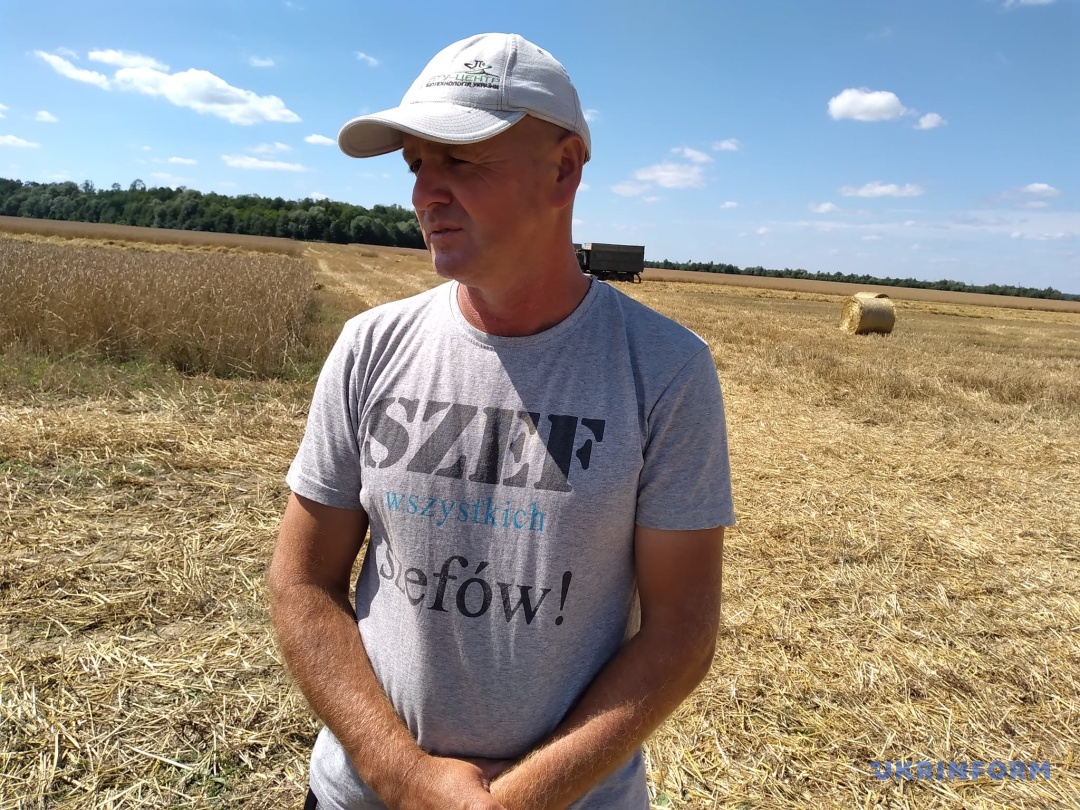
"The farm did not stop or reduce its sown areas during the war. Wheat is doing well now, so everything should be fine," the man says.
An agronomist has work to do in the field all year round. First, he controls the quality of sowing, then germination, monitors the plants' condition in winter and spring, and assesses when they can be harvested. Colleagues joke that Roman is now "cooling off," but in fact he makes sure that the harvester does not go too fast and does not leave any losses behind.
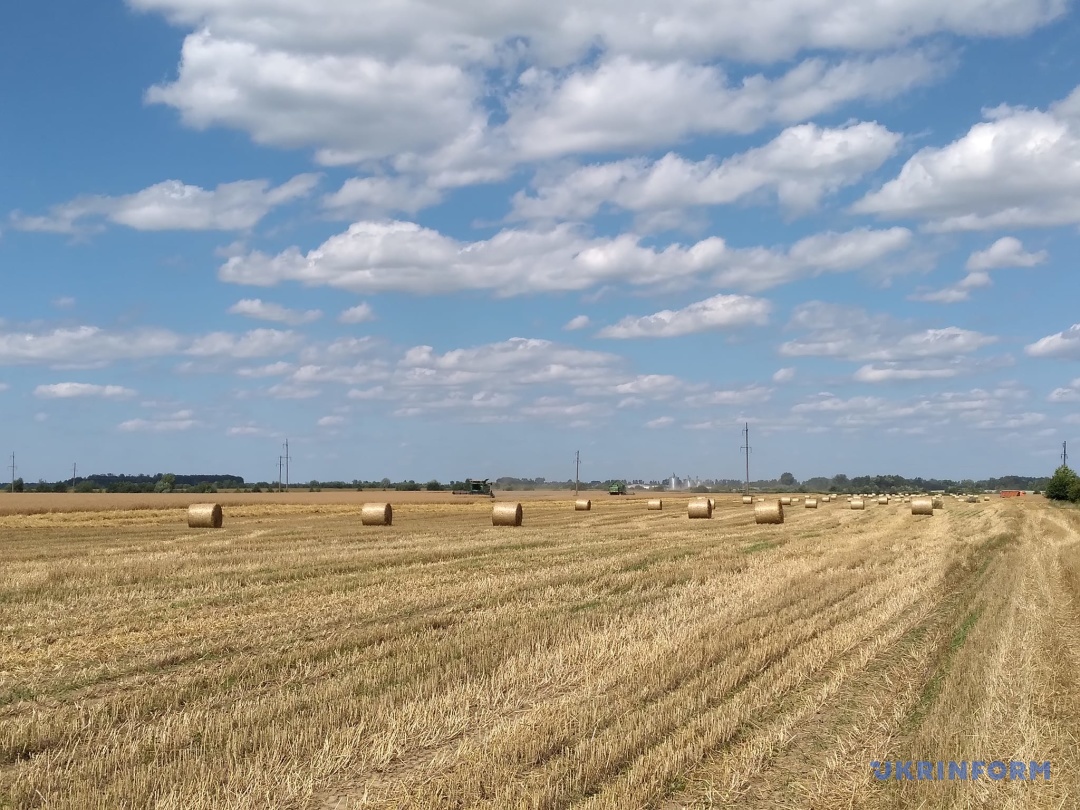
The chief agronomist adds that there are 5 harvesters, 5 trucks, and a press working in this field. The harvester works for 14 hours. Two people operate such equipment. The harvesters will rest on December 31, as they will still be harvesting corn by then.
We are leaving the field. The blue sky is cloudless over the spelt plot and sunflower plantation. The scenery resembles the flag of Ukraine, which, like the farmers, is now fighting its battle.
Iryna Chyrytsia, Zhytomyr
Photos by the author




